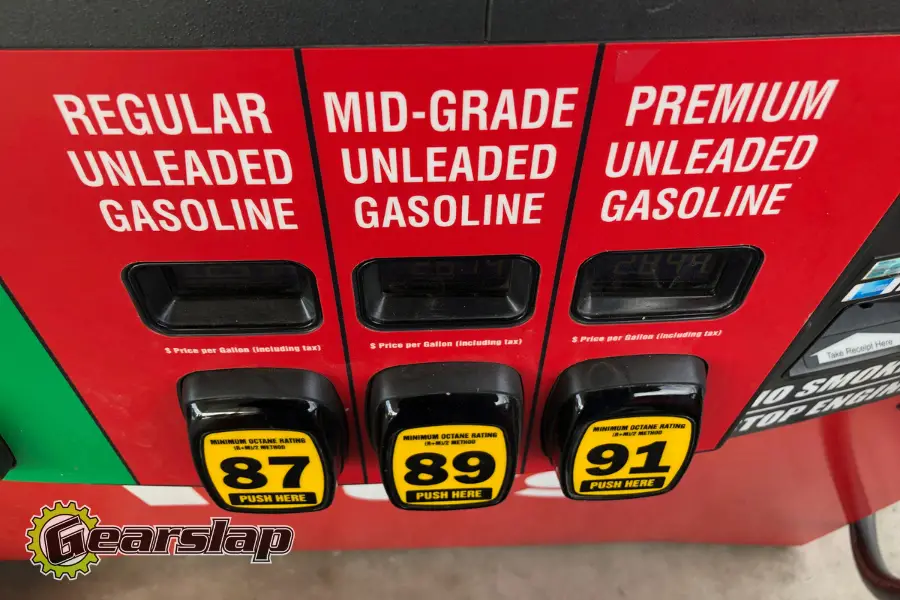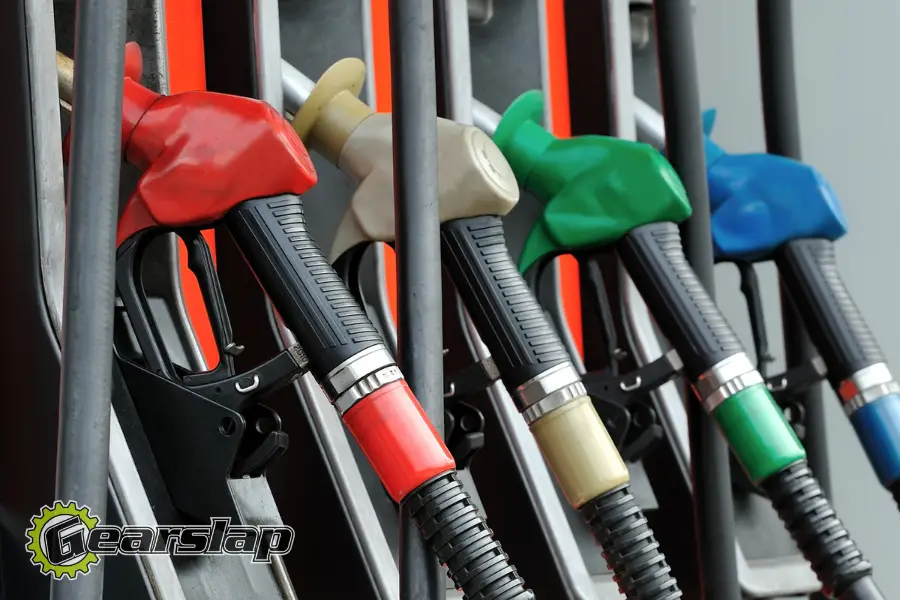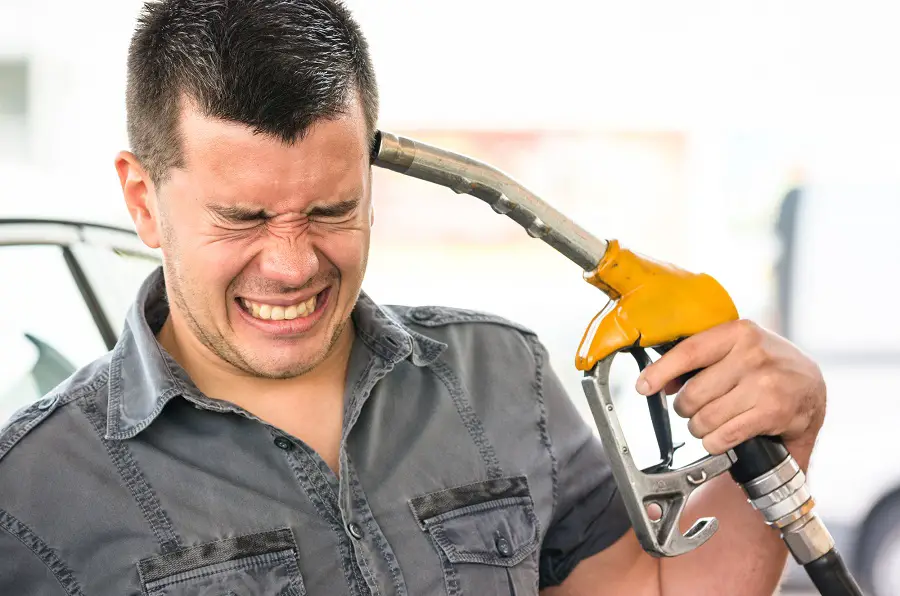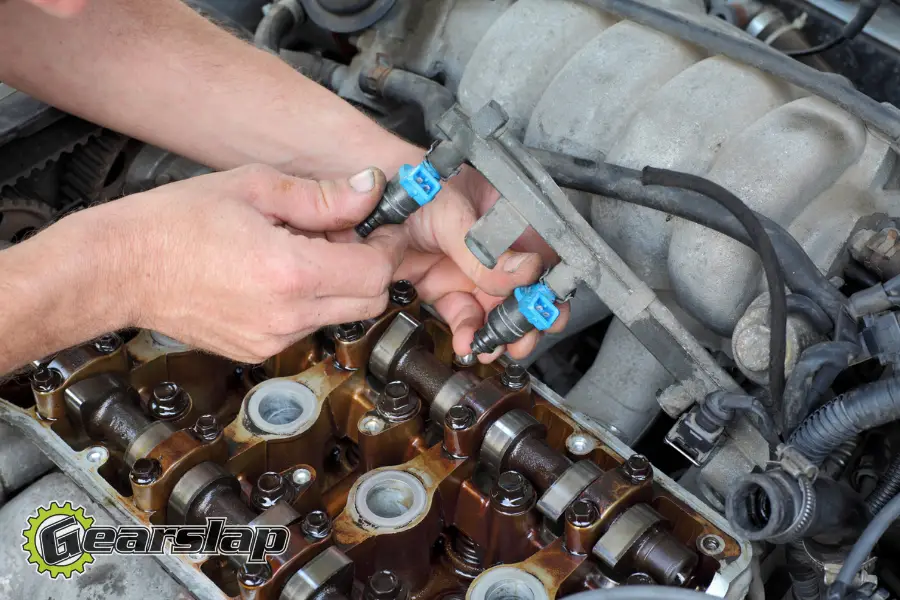We’ve all seen octane ratings at the pump, but what is fuel octane? Very simply, octane ratings are measures of the stability of the fuel. These ratings are based on the pressure that fuel will auto-ignite or spontaneously combust in a testing engine. With this in mind, it makes sense to choose a gas with the best octane, right?
Not so fast! The octane of the fuel is directly related to gas prices. In other words, the difference in price can be attributed to the octane rating, and higher octane gas is noticeably more expensive. Should you spend the extra money on higher octane gas? Let’s take a closer look.

Understanding Octane Ratings at Gas Stations & Types of Gas
As we previously mentioned, octane ratings are based on the pressure that fuel will auto-ignite or spontaneously combust in a testing engine. The actual octane number is an average of two different octane rating methods:
- Motor Octane Rating (MOR)
- Research Octane Rating (RON)
In short, the higher the octane number, the more stable your fuel will be. And some vehicles are uniquely designed to run on specific types of gas. Below are the most common types of gas and the difference between gas octanes:
Pump Types of Gas
Across the United States, you can generally find three different pump gas ratings :
- The lowest octane fuel is Regular gasoline. Regular fuel will typically have an octane rating of either 85 or 87.
- The midgrade fuel is Midgrade. This octane rating is normally anywhere from 89-90.
- Premium gasoline is the highest octane fuel. Premium fuel ratings can range anywhere from 91-94
While different companies can have unique names for different grades of gas — regular fuel or unleaded fuel, mid-grade, and super-premium — they all are referencing the octane rating. In addition, two other common fuels are:
- 85 octane
- Race gas
What Is 85 Octane Gasoline?
Originally, the sale of 85 octane fuel was allowed for use in carbureted vehicles in regions with higher elevations. However, if you have a modern vehicle with a modern engine, you shouldn’t use this gas because your vehicle wasn’t designed for it.
In modern vehicles, you won’t optimize the performance, in most cases, with the lower octane fuel. In fact, your gas mileage may even suffer with the lower-powered fuel.
What Is Race High-Octane Fuel?
Commercial racing fuel is gas with additives designed to bolster octane even more. These can include a higher percent ethanol content, methanol, and lead. For example, just a little lead can raise the octane of racing fuel by about 20 numbers. Lead, however, isn’t compatible with oxygen sensors.
The majority of fuel systems will not be harmed by race gas. While you can mix commercial racing fuel in normal vehicles, there is no real reason to do so. Commercial racing fuel is designed to perform at higher pressures and temperatures. If you use racing gas in a standard consumer vehicle, there will be no noticeable gain in performance.

Can You Mix Different Octanes of Gas?
Considering mixing regular unleaded and premium gas? Mixing fuels with two different octanes will equate to a fuel tank with an octane rating somewhere between the two. The actual octane rating will be based on the percentage of regular gas vs the percentage of premium gas.
As long as your vehicle can run on the new “blended” octane fuel from mixing different octanes of gas, you shouldn’t have any issues with it.
What Are Octane Boosters?
As the name suggests, an octane booster is a liquid additive designed to increase your octane rating. This additive can offer your vehicle the same benefits of higher octane gas.
Does Higher Octane Mean It’s a Better Type of Gas?
In general, the higher the octane number, the better the fuel burns within the engine. And higher performance vehicles typically require gas with a higher octane rating. The engine in your vehicle is engineered to burn fuel in a process called controlled combustion. (turbocharged vehicles will almost always require a higher octane fuel)
Here’s how it works: a flame starts at your spark plugs and then burns throughout your cylinder. This happens until the fuel in the cylinder is entirely consumed. This is in contrast to spontaneous combustion, which happens when rising pressure and temperature from the main combustion causes fuel that is unburned to ignite.
Also recognized as knock, detonation, and auto ignition, this uncontrolled combustion causes a spike in the cylinder pressure, which creatures a ping or a knock. The battle between uncontrolled or unintended combustion vs controlled combustion leads to an uneven disbursement of fuel. This exerts high pressure on the pistons prior to entering the power stroke, which can cause damage.
Fortunately, most modern engines have electric ignition and knock sensors that detect engine knock. When the system detects engine knock, the spark is delayed to cause the controlled combustion to occur when compression isn’t at its peak.
Even though this system can eliminate the knock, it will cause your engine to perform less efficiently. In other words, the desired engine performance is based on the use of a specific octane fuel. It’s best to use the fuel octane your engine was designed to run on.
Do Vehicles Really Need Higher Octane Fuel?
Engines that use turbocharging and or supercharging to force extra air into the cylinder or engines that have a higher compression ratio may require higher octane fuels. Increasing pressure in the cylinder allows the engine to harness more mechanical energy from the fuel/air mixture.
However, these engines may require a higher octane fuel to prevent the mixture from detonating. Performance cars or vehicles that recommend or require higher octane gas need it to achieve better fuel economy and optimum performance.

Is Putting Higher Octane Fuel in the Gas Tank Worth the Money?
If your vehicle requires premium fuel or mid-grade fuel, it’s absolutely worth the additional money. On the other hand, if your owners manual suggests your vehicle will perform better on higher octane fuel, it’s entirely up to you.
Can I Use a Lower Octane Regular Unleaded Fuel to Save at the Pump?
Opting to use a lower octane gas than what’s suggested or required can cause your engine to run poorly. At the same time, it could lead to emissions control system damage as well as engine damage over time. Even worse, it could void your warranty.
If you have an older vehicle, it can cause your engine to make the knocking sound that was previously mentioned. However, many of today’s newer vehicles have the ability to manage the timing of the spark to manage or reduce knock, but your fuel economy and engine power are both likely to suffer.
Can I Improve Performance or Fuel Economy with Higher Octane Fuel?
While using a higher octane fuel for a vehicle that requires it can lead to improvements in performance and fuel economy, using a higher octane fuel in a vehicle that doesn’t require it doesn’t always equate to the same outcome. For most vehicles, the higher octane fuel can render all the same benefits — but these gains may only be experienced by a few percentage points during:
- Moving heavy loads
- Hot weather
- Towing a trailer
On the other hand, if you’re doing normal day-to-day driving, a higher octane fuel may not provide the benefits you would expect.
What Is the Best Fuel Octane for My Vehicle?
The best fuel octane for your vehicle is the one specified by the owner’s manual. It is, however, better for your vehicle to use a higher octane gas than one that is lower than what’s specified. If you drive a luxury vehicle that requires premium gas, you should make sure to fill up prior to driving to a higher altitude location — because you may not be able to find a gas station that offers the octane you require.


